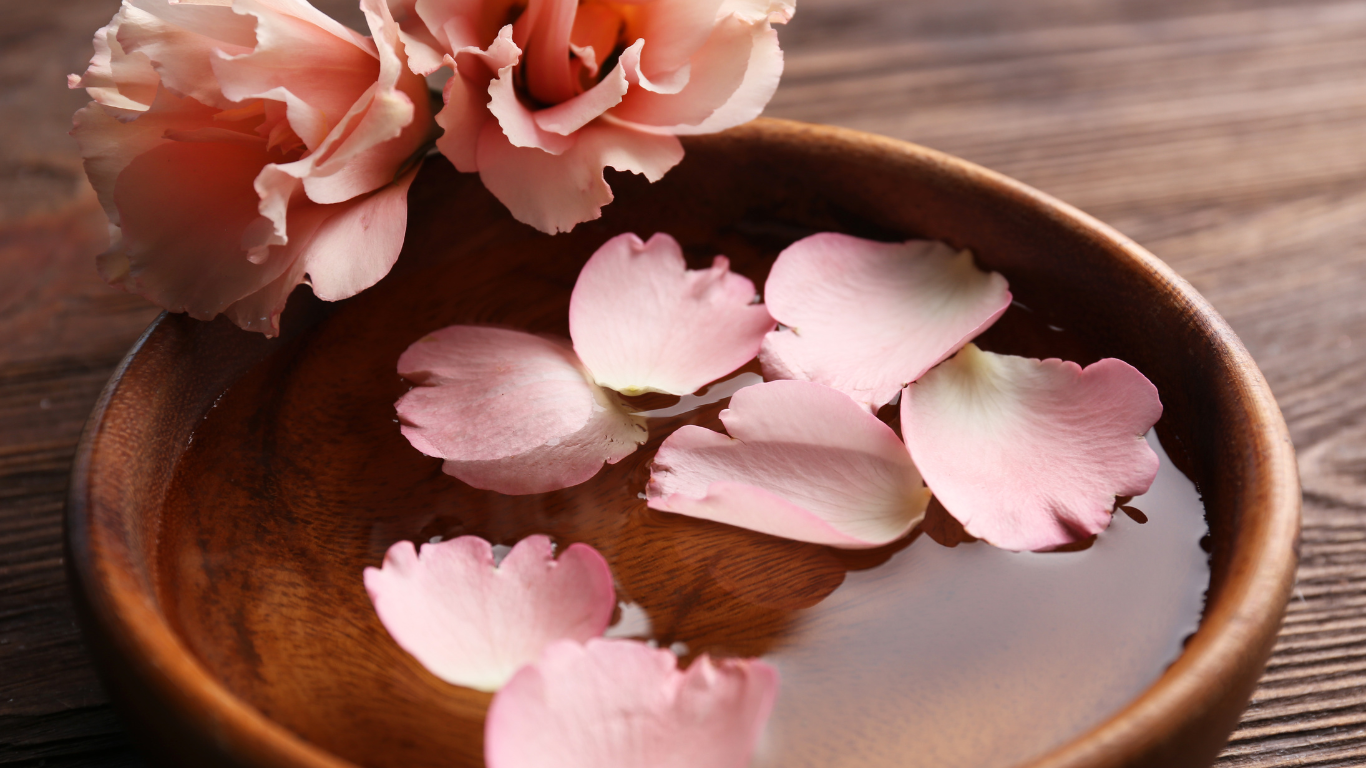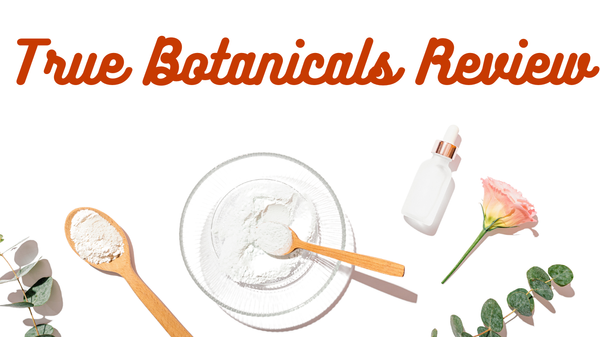The Ultimate Guide to Making Rose Water at Home

Rose water, a fragrant and versatile ingredient, has been used in traditional medicine, beauty, and cuisine for centuries. This delightful floral water is incredibly easy to make at home using fresh rose petals, distilled water, and a few minutes of your time. Not only is it refreshing and delicious, but rose water is also packed with antioxidants and anti-inflammatory compounds that offer a range of health benefits, including heart health, hydration, and stress relief. In this ultimate guide, we'll show you how to make rose water for hair, skin, cooking, and toning your face, as well as some creative ways to use your homemade rose water.
A Glance into the History of Rose Water
The enchanting rose water traces its origins back to ancient Persia (now known as Iran), where roses were first cultivated. In time, the aromatic water made its way to the Roman Empire and eventually throughout Europe, finding applications in both culinary and medicinal realms. Rose water was used by medieval physicians in concoctions to improve general health, while in the culinary world, it was a prized flavoring agent in delicacies.
Historically, rose water was also integral in religious and spiritual rituals, used in purification ceremonies and sacred rites. In beauty care, the wealthy classes used it as a skin toner and perfume due to its soothing properties and enchanting scent.
Fast forward to the present, rose water has experienced a resurgence in popularity as a natural and effective remedy in the skincare and wellness industries. This can be attributed to the global shift towards plant-based and chemical-free products. Today, rose water is praised for its hydrating, anti-inflammatory, and antioxidant properties, becoming a staple in many people’s daily routines.
Medical Research Behind Rose Water
Rose water's therapeutic properties are more than just anecdotal; they are backed by various scientific studies. Research suggests that rose water is rich in flavonoids and anthocyanins, potent antioxidants that protect cells from damage by neutralizing harmful free radicals[^1^]. Furthermore, a study published in the "Journal of Inflammation" found that rose water has significant anti-inflammatory properties, which can help soothe irritated skin[^2^]. Another research, published in the "International Journal of Pharmaceutical Sciences and Research," revealed rose water's potential as an anti-aging agent due to its high phenolic content[^3^]. These findings substantiate the historical use of rose water and validate its place in contemporary skincare and wellness practices.
[1]: Therapeutic Applications of Rose Hips from Different Rosa Species
[2]: Pharmacological Effects of Rosa Damascena
The Key Ingredient: Rosa Damascena
At the heart of rose water's therapeutic properties is the key ingredient itself: Rosa Damascena. This species of rose is high in bioactive compounds, including essential oils, flavonoids, and anthocyanins. Rosa Damascena's essential oils have been shown to possess anti-microbial and anti-inflammatory properties, playing a crucial role in skincare for reducing redness and irritation[^4^].
Flavonoids, a type of antioxidant found in Rosa Damascena, play a critical role in protecting the body's cells from oxidative stress, which can lead to premature aging and various diseases. The anthocyanins in Rosa Damascena also contribute to rose water's antioxidant capabilities, providing protection against cellular oxidative damage[^5^].
Moreover, the phenolic compounds in Rosa Damascena have significant anti-aging effects. These compounds inhibit the formation of enzymes that break down collagen, the protein that maintains skin elasticity, thus providing anti-aging benefits[^6^].
In essence, the Rosa Damascena in rose water is a powerhouse of beneficial compounds that contribute significantly to your body's health and wellness, both inside and out.
[4]: Essential Oils from the Rosaceae Family
[5]: Anthocyanins in Health and Disease
[6]: Phenolic Compounds in Skincare
The Big Question- Can Rose Quartz go in Water?
A frequently asked question among those who use gemstones for their purported healing properties is whether these stones can be placed in water. Specifically, for rose quartz, the answer is - Yes. Rose quartz is a durable mineral that can safely be placed in water without dissolving or damaging its surface. Some people even prefer to cleanse their rose quartz by soaking it in salt water, believing that this method effectively clears away any negative energy the stone may have absorbed. However, it's essential to note that prolonged exposure to water may cause some stones to lose their luster over time. As a precaution, always pat dry your rose quartz after cleaning or using it in water.

Rose Water Techniques and FAQs
In this next section, we'll delve into several commonly asked questions about the use of rose water. We recognize that everyone has unique needs and uses for rose water, which is why we've carefully curated a set of questions that cover a broad range of scenarios. Whether you're interested in rose water for its skincare benefits or its role in culinary applications, we've got you covered. We're committed to ensuring that you reap the most benefits from your rose water, no matter how you choose to utilize it. Let's explore the myriad ways you can incorporate this potent elixir into your daily routine.
How to make rose water for beauty?
To begin, gather a handful of fresh rose petals and some distilled water. Start by rinsing the petals thoroughly in cold water, ensuring that any dirt or debris is removed. Once cleaned, place the petals in a large pot. Next, carefully pour enough distilled water into the pot, making sure that the petals are completely submerged. Heat the pot over medium-high heat until the water comes to a boil. Once boiling, reduce the heat to low and cover the pot with a lid. Allow the mixture to simmer gently for approximately 30 to 45 minutes, or until the petals lose their color. Once done, remove the pot from the heat and let it cool down completely. Once cooled, strain the liquid into a glass bottle, ensuring that no petal residue remains. And voila! You now have your very own homemade rose water, ready to be incorporated into your beauty routine.
How to make rose water for cooking?
Rose water is popular in Middle Eastern, Indian, and Mediterranean cuisine and can be used to flavor a wide range of dishes, from sweets to meats. To make edible rose water, follow the same process as for beauty rose water but use double the amount of petals for a stronger flavor. Make sure to use only organic and pesticide-free flowers, preferably from your own garden or a reputable source. You can also add a few drops of food-grade rose essential oil for an extra boost of flavor. Once ready, store the rose water in a glass bottle and use it to add a delicate floral touch to your cooking.
How long does homemade rose water last?
Homemade rose water can last up to 2 weeks when kept in the fridge, or up to 6 months if stored in the freezer.
Can I use dried rose petals to make rose water?
Yes, you can. However, fresh petals are preferred for a more potent and natural scent and flavor.
What are the benefits of using rose water in beauty routines?
Rose water has anti-inflammatory properties that are the main driver for using this remedy. As we age, body inflammation is one of the key leading factors towards disease and cancer. Limiting inflammation in anyway possible is the best recourse to a successful health record.
How to make rose water for toning your face?
Rose water is a versatile natural toner suitable for all skin types. It not only helps balance the skin's pH but also soothes inflammation and combats acne-causing bacteria. To create a rose water toner, simply mix equal parts rose water with either witch hazel or apple cider vinegar. Store the mixture in a spray bottle for convenience. Incorporate this toner into your skincare routine by applying it twice a day after cleansing your face or use it as a refreshing mist throughout the day.
How to make rose water spray?
Rose water spray is an incredibly versatile and convenient solution for hydrating and nourishing your skin and hair while on the go. To create your own rose water spray, start by combining one part rose water with two parts distilled water in a spray bottle. For an extra touch of luxury, add a few drops of your favorite essential oils like lavender or chamomile. Give the bottle a good shake to ensure the ingredients are well-mixed, and voila! You now have a refreshing and rejuvenating mist that you can use anytime you need a quick pick-me-up.
How to make rose water for hair?
Rose water can help strengthen and revitalize your hair, reduce dandruff and itchiness, and add shine and volume. To make a rose water hair rinse, mix one part rose water with four parts water, and massage it into your scalp and hair after shampooing. Let it sit for a few minutes and then rinse it off thoroughly with cold water. You can also add a few drops of Some examples of essential oils include lavender, peppermint, eucalyptus, tea tree, lemon, and rosemary. These oils are commonly used for their various therapeutic properties, such as promoting relaxation, relieving headaches, boosting focus and concentration, supporting respiratory health, and enhancing the overall well-being.for extra benefits and aroma.
Key Takeaways
- Rose Water Has Multiple Benefits: Whether it's skin care or hair care, rose water adds value to both. It hydrates, nourishes, and rejuvenates the skin while strengthening and revitalizing the hair.
- Homemade Rose Water Spray is Versatile: By combining one part rose water with two parts distilled water, you can craft a refreshing spray. Adding a few drops of essential oils like lavender or chamomile can enhance its luxury.
- Rose Water as Hair Rinse: A blend of one part rose water to four parts water serves as an effective hair rinse post-shampoo. It not only boosts the health of your hair but also reduces dandruff and adds shine.
- Infusion of Essential Oils: Essential oils like lavender, peppermint, eucalyptus, tea tree, lemon, and rosemary can be added to the rose water for further benefits. These oils contribute to relaxation, headache relief, focus, respiratory health, and overall well-being.
Other Products Similar to Rose Water
- Witch Hazel: Witch Hazel is a natural astringent that can help control it and its anti-inflammatory properties can alleviate skin irritation. Thayers Witch Hazel Facial Toner
- Orange Blossom Water: This is often used as a toner for oily skin. It can help to balance skin oils and make your skin feel fresh and clean. Cortas Orange Blossom Water
- Aloe Vera Gel: A great natural moisturizer, this product can be used to soothe skin and provide hydration. Organic Aloe Vera Gel
- Chamomile Water: Chamomile water can be used as a soothing toner or added to a nice drink of tea for a relaxing experience. Roman Chamomile Floral Water
Affiliate Disclosure: Please note that some of the links provided in this article are affiliate links. This means that we may earn a small commission if you decide to make a purchase through these links, at no extra cost to you. This helps to support our website and enables us to continue providing you with valuable wellness and lifestyle content. All reviews and recommendations are based on our own honest opinions and experiences, regardless of the affiliate relationship. We truly appreciate your support.
Making rose water at home is a simple, affordable, and rewarding experience that can add a touch of luxury and wellness to your daily life. Whether you want to use it in beauty products, cook with it, or drink it, rose water offers a touch of elegance and natural goodness. With this ultimate guide, you have all the information you need to indulge in the beauty of roses and create your own rose water variations. Get creative, experiment with different petals, and enjoy the many benefits of rose water.
Thank you for visiting The Wellness Ledger. We're committed to providing valuable insights into wellness, lifestyle, and travel. We hope that the information we've shared has been helpful and that you'll check back often for more inspiring and educational content. Remember, wellness is a journey, not a destination. We're thrilled to be part of your journey. Happy exploring!




